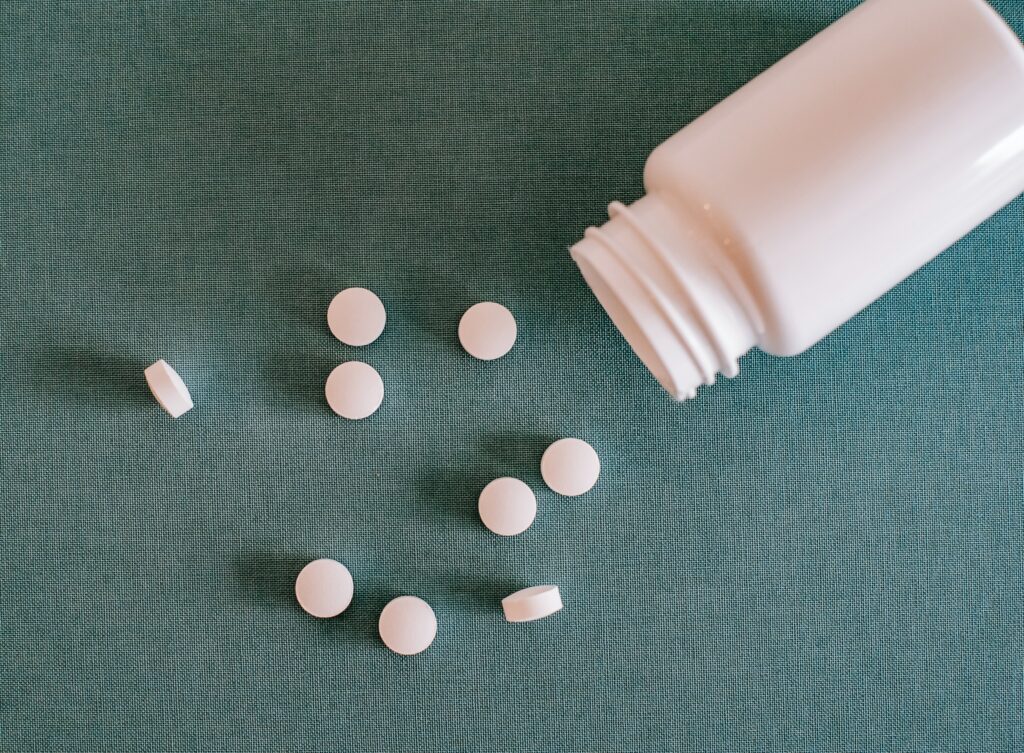The K18 pill, containing 5mg of oxycodone, is a powerful pain medication prescribed for moderate to severe pain. While effective, oxycodone, including the K18 pill, carries a high risk of addiction and abuse.
This blog aims to provide information and resources for those who may be struggling with or concerned about K18 pill use. We’ll discuss the potential risks, signs of addiction, and available treatment options.
What Are K18 Pills (Oxycodone)?
Oxycodone is the primary active ingredient found in various pain medications. The most common medications where oxycodone is the primary pain-relieving ingredient are:
- OxyContin
- Percocet
- Roxicodone
- K18 pills
Oxycodone was identified as potentially dangerous back in the 1960s. While the drug has pain-relieving properties, it also induces euphoria and rewarding effects. This means that while it’s impossible to discount the medical benefits of K18 pills, they also carry a risk for abuse and addiction.
Aggressive lobbying led to oxycodone being classified as a schedule II controlled substance. It’s illegal to possess or use oxycodone in the U.S. without a doctor’s prescription.
Oxycodone is chiefly used for the management of moderate to severe pain after injury or surgery.
If you use this medication strictly in accordance with the provided prescription, oxycodone can be a beneficial and reliable solution to short-term pain relief. Unfortunately, many people start out taking oxycodone as directed, but go on to misuse or abuse the medication over time.
Oxycodone interacts with your brain’s opioid receptors and blocks the pain signals produced in the brain before they can hit your central nervous system. At the same time, oxycodone causes a release of dopamine, a chemical that delivers a feeling of euphoria and sedation. It’s these painkilling and euphoric effects that results in abuse of oxycodone, in many cases leading to full-blown addiction. In some users of oxycodone, dependence can build after just a few uses.
Are K18 Pills Addictive?
Like all opioids, K18 pills can be highly addictive. It is possibly for addiction to develop in the form of opioid use disorder even if you take this medication as directed by your physician.
Tolerance to opioids like the K18 pill builds rapidly, meaning you will need more of the medication to achieve the same effects, or you will need to take more frequent doses of the medication. If you continue taking more oxycodone to mitigate the diminished effects, you will become physically dependent on the substance. By this stage, you will need to use oxycodone to function normally, and the absence of oxycodone will trigger the onset of adverse withdrawal symptoms.
In some cases, oxycodone addiction can develop after just a few days of using the medication. This does not always happen. That said, the risk of using opioids long-term sharply increases after one month of use. This risk is compounded if you use more than one opioid like oxycodone in combination.
The main variables that impact the development and oxycodone addiction and the speed at which it unfolds include:
- Oxycodone dosage: The amount of oxycodone you are taking, and the method of delivery can increase the risk of addiction. Using more oxycodone than prescribed will accelerate the development of opioid use disorder.
- Frequency of oxycodone use: The frequency of oxycodone dosages will also influence your risk profile for addiction.
- History of substance use or mental health disorders: If you have a history of abusing alcohol, prescription medications, or illicit drugs, you will be at heightened risk of developing opioid use disorder when using oxycodone long-term. The same applies to those with mental health conditions like depression, anxiety, or PTSD.
How can you determine when K18 use is veering toward abuse and addiction?

K18 Pill Addiction Symptoms
If you suspect you might be addicted to oxycodone, you should immediately voice your concerns with your healthcare provider. They may refer you to a mental health professional or addiction specialist for a diagnosis of opioid use disorder.
APA (American Psychiatric Association) recently published DSM-5-TR, an updated version of Diagnostic and Statistical Manual of Mental Disorders, a benchmark tool used to diagnose substance use disorders, alcohol use disorders, and mental health disorders.
For a diagnosis of opioid use disorder, you will be asked variations on the following eleven questions concerning your use of oxycodone over the previous year. These questions form the diagnostic criteria for oxycodone addiction:
- Do you spend large chunks of time obtaining and using oxycodone, as well as recovering from the effects of oxycodone abuse?
- Have you more than once unsuccessfully attempted to stop using oxycodone or to moderate your use of oxycodone?
- Do you frequently take more oxycodone than planned?
- Do you ever get powerful cravings for oxycodone?
- Does your use of this medication cause you to neglect responsibilities at home, work, or school?
- Are you still using oxycodone even though it is triggering problems in your interpersonal relationships?
- Has tolerance to oxycodone formed so you need more of the medication to achieve the same effects?
- Do you spend less time engaged with hobbies and interest in favor of using oxycodone?
- Have you used oxycodone in potentially dangerous situations?
- Do you experience withdrawal symptoms when the effects of oxycodone subside?
- Are you still using oxycodone even though it is triggering or inflaming a physical or mental health condition?
Opioid use disorder is diagnosed as follows according to the number of oxycodone addiction symptoms present:
- Mild oxycodone addiction: 2 to 3 symptoms
- Moderate oxycodone addiction: 4 to 5 symptoms
- Severe oxycodone addiction: 6 or more symptoms
Oxycodone Addiction Treatment
Like all opioids, the K18 pill oxycodone is powerfully addictive but also responds favorably to treatment with FDA-approved medications.
Before engaging with treatment for opioid use disorder, you must first purge the toxins from your system. Using oxycodone changes brain and body chemistry, allowing your body to adapt to the presence of opioids. Discontinuing use will bring about uncomfortable withdrawal symptoms.
A supervised medical detox allows a treatment team to administer a variety of medications to streamline cravings and oxycodone withdrawal symptoms. Emotional and clinical care is available around the clock, minimizing the likelihood of complications during oxycodone withdrawal. In a substance-free medical setting, you will also remove the temptation to use opioids, relapsing before your recovery gets underway.
Once you have detoxed from oxycodone, you will be physically prepared to address the psychological component of opioid addiction. You can achieve this through either inpatient or outpatient rehab. We can help you with this here at Renaissance Recovery Center.
K18 Pill Addiction Treatment at Renaissance Recovery
Although K18 pills can be highly addictive, we can help you address the physical and psychological aspect of opioid addiction here at Renaissance.
Most people dependent on opioids like K18 pills find that a supervised medical detox offers the smoothest route to recovery. We can connect you with a variety of licensed medical detox centers in Orange County and throughout Southern California.
At Renaissance, we specialize in the outpatient treatment of opioid addiction. If you require more support and structure in your recovery, we also offer IOPs (intensive outpatient programs) or PHPs (partial hospitalization programs).
Opioid use disorder responds positively to a combination of medication-assisted treatment and psychotherapy. Our treatment programs also include:
- Counseling (individual and group)
- Family therapy
- Holistic therapy
When you’re ready to move beyond opioid addiction, call the friendly Renaissance team at 866.330.9449.










